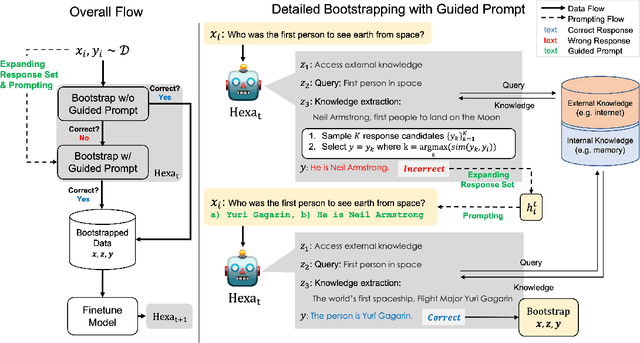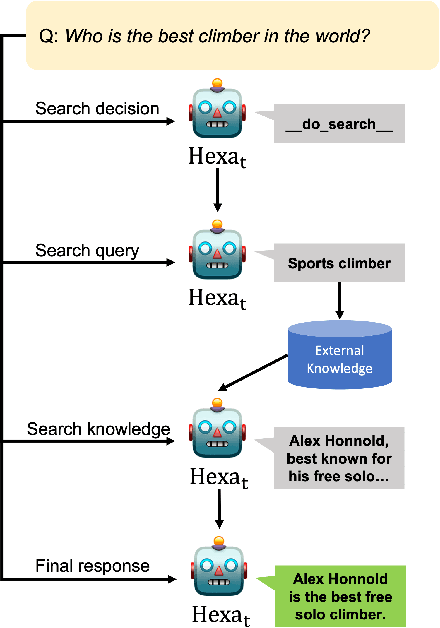Hexa: Self-Improving for Knowledge-Grounded Dialogue System
Paper and Code
Oct 22, 2023



A common practice in knowledge-grounded dialogue generation is to explicitly utilize intermediate steps (e.g., web-search, memory retrieval) with modular approaches. However, data for such steps are often inaccessible compared to those of dialogue responses as they are unobservable in an ordinary dialogue. To fill in the absence of these data, we develop a self-improving method to improve the generative performances of intermediate steps without the ground truth data. In particular, we propose a novel bootstrapping scheme with a guided prompt and a modified loss function to enhance the diversity of appropriate self-generated responses. Through experiments on various benchmark datasets, we empirically demonstrate that our method successfully leverages a self-improving mechanism in generating intermediate and final responses and improves the performances on the task of knowledge-grounded dialogue generation.
 Add to Chrome
Add to Chrome Add to Firefox
Add to Firefox Add to Edge
Add to Edge